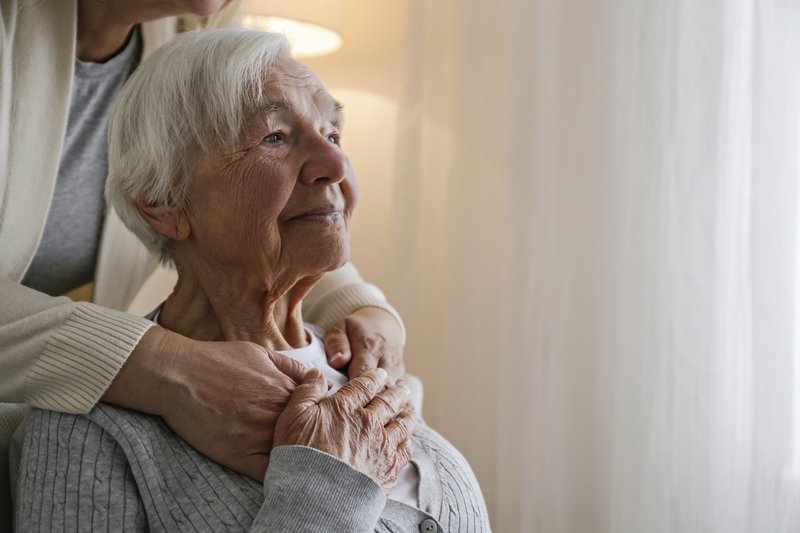Ageing is one of the most challenging social issues of our time. It's complex, with individual, social and economic challenges. In addition to personal and family challenges, which are often great and difficult to overcome, ageing has implications for social security, the labour market, taxation and public debt, electoral behaviour and social cohesion, among others. The complexity of the whole system, coupled with the fragility and fragmentation of so many services - provided by companies, social organisations and public institutions - should first make us all apprehensive, and then lead us to collaborative action. Let's start with the first, in this article: apprehension.
Apprehension would naturally be generated by the fear that in our future as "old people" we won't have the necessary support to guarantee the dignity we desire. But do we feel this apprehension? And if we do, does it stay with us to the point where we want to do something to change things?
Those who are better off economically, and who are aware of the challenges of old age, probably strive every day to have enough to guarantee them that dignity when they are old. The poorest will be counting on social security to provide for them. The middle class will live with some struggles and counting money in their later years too, hoping that it will be enough to cover all their expenses, including medication and food. It is very likely that, with more or less resources, the vast majority of us will not have the support we expect today.
The rich may have the money to pay for it, but the quality of service for the elderly today is less than desirable in the area of care, whether it's home care, care in nursing homes (private or not-for-profit) or in hospitals - there is a general lack of staff, a lack of qualified staff and the quality of management of the organisations that provide the services has a lot to develop. The poorest may want social security support, but it won't be enough for everyone, nor will the existing infrastructure - social and health - be enough for everyone. Minimal attention to the news during the pandemic about nursing homes (ERPIs, as they are known) was enough to realise that this is the reality. You only have to keep an eye on the news about the health system in our country to confirm that the reality is the same as during the pandemic, if not worse.
You see where the reasoning necessarily leads: we should all be apprehensive about what awaits us and what our children's lives will be like, if we have any, when they see the situation we will be in.

Are we going to cross our fingers and hope that our health holds up as well as possible for as long as possible?
For the first time since the pandemic, and probably because of it (around half of COVID-19 deaths in the first year occurred in care homes), the European Union has produced a European vision for care - the European Care Strategy (September 2022).
This document states that care services should be available to all, regardless of age, gender or social status, and that they should be of high quality and centred on the person, maintaining their autonomy and guaranteeing their dignity, etc. According to the same document, the reality in Europe for the elderly is that almost half of people aged 65 and over with long-term care needs do not have the necessary support for personal and home care. In 2050 it is estimated that 38.1 million people will need long-term care, 23.5 per cent more than in 2019.
So already today, half of Europeans aged 65 and over don't have the support they need.
Why is this? Apart from a lack of information, what is really lacking is skilled carers at costs that people can afford if they choose home care, and the same if they choose residential care. There is a shortage of workers who want to work in this profession. And if there are, not all of them are technically and humanly qualified.
"Apart from a lack of information, what is really lacking is skilled carers at costs that people can afford if they choose home care, and the same if they choose residential care."
The European document I mentioned earlier explains that we need to make it easier for potential carers to access the labour market and effectively create more jobs in the sector. More than 9.1 million people, mainly women, are formally employed in the EU in the care sector, typically with low pay and poor working conditions, which makes it difficult to retain and attract new workers.
Where are the people who want to work in a sector as demanding as care? Where is the training these people need to be able to effectively provide quality services? What is a decent wage? How much are we willing, as a society, to invest in this?
Many of the 52 million or so Europeans who provide informal long-term care are unable to participate fully in the labour market, decreasing public revenue and increasing the shortage of people in the labour market. In 2019, member states spent an average of 1.7 per cent of GDP on long-term care, with the ILO estimating that an increase to 1.9 per cent would result in the creation of 13.6 million additional jobs.
Where are the policies of companies and other organisations to support their workers who are informal carers, because families have no alternatives? Where are the public policies for credible investment in the growth of jobs in the care services?
If the quality of care is increased, hospital admissions will be reduced, relieving pressure on the health sector. But where is the investment in creating a capable care system that can really fulfil its role with quality?
This brief picture should be enough to mobilise us as a society to begin to understand the system and take action to improve it. Changing the system, precisely because it is complex, will necessarily involve collaborative action, involving multiple partners, with different expertise and resources, in a real change of a system of systems.
If you are already taking action to change the system and would like to exchange views with others who are also doing so, please get in touch (raquelcfranco@deforafora.com).



